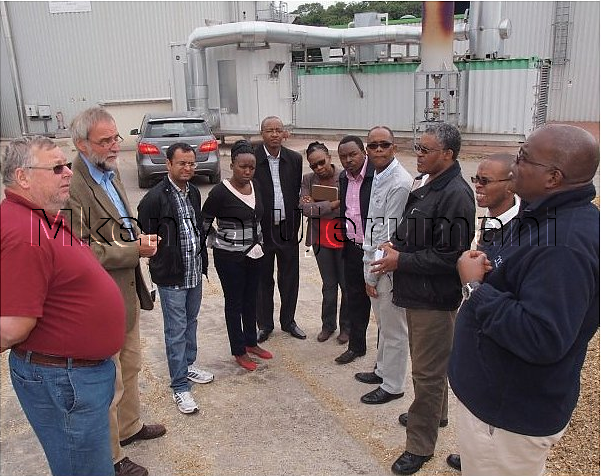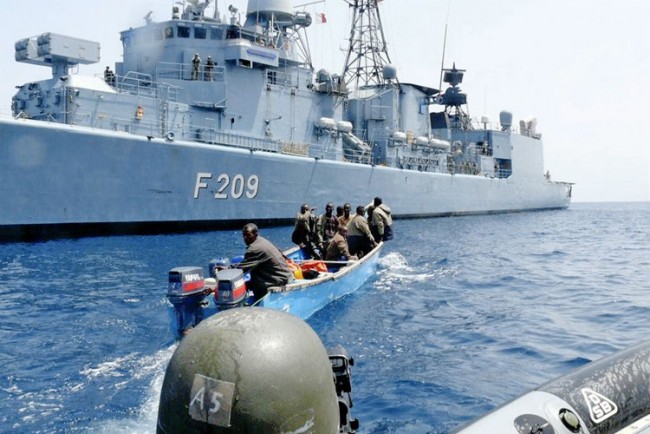The International Council of Chemical Associations (ICCA), the United Nations Environment Programme (UNEP), BASF and other companies in the chemical industry want to improve the chemical transportation safety in Africa. The project “Promoting Chemical Safety Management in the African Region” will run for two years. The first workshop in this regard was held on November 28th and 29th, 2013, at the port of Mombasa in Kenya.
Chemicals arrive in Mombasa by ships and are then loaded on trucks for connecting transportation to East and Central Africa. The port Tema in Ghana supplies West Africa. It is important to improve safety of chemical transportation and handling at the ports. For this reason, ICCA, UNEP and chemical companies will run a program together with the authorities to practice on how to handle chemicals as well as what to do during emergencies. Product leakages or fires due to inappropriate shipment and storage or transport pose a danger. Together with the port authorities, experts of the BASF fire department will elaborate which steps should be taken in case of emergency and who is responsible for which tasks. More importantly, it is about what should be done to avoid emergencies.
“The workshops so far have shown that the emergency preparedness has to be improved and adequate skills required in cases of emergency have to be developed,” said Dr. Anna Hitschler, project head and manager for Product Safety at BASF. In order to spread this knowledge, the project provides teaching materials on the secure handling of chemicals in English and French. This information is being communicated at the workshops and is also available online.
In addition, a “Hazard Mapping” is in progress, which brings together available statistics from African authorities. “We combine statistics of accidents with data about the most important traffic routes on which chemicals are transported. According to our experience all relevant data have already been gathered but not yet connected,” explained Hitschler. By combining the data, potential places of accidents can be predicted and guidance for future transports can be given. If, for example, an accident blackspot on one of the major transport routes is near a water reservoir of a local community, then the project aims at elaborating recommendations to prevent further accidents.
The project is financed by ICCA for two years with about US$300,000 and is supported locally by the UNEP. Together with ICCA, BASF is in charge of the project and experts from Ludwigshafen are training authorities and other companies in Kenya and Ghana.
The project “Promoting Chemical Safety Management in the African Region” is part of the initiative “Responsible Care” of the chemical industry. The voluntary initiative aims to continuously improve issues of the chemical industry such as environment, health and safety as well as a transparent dialogue with different stakeholders.
About BASF
BASF is the world’s leading chemical company: The Chemical Company. Its portfolio ranges from chemicals, plastics, performance products and crop protection products to oil and gas. We combine economic success with environmental protection and social responsibility. Through science and innovation, we enable our customers in nearly every industry to meet the current and future needs of society. Our products and solutions contribute to conserving resources, ensuring nutrition and improving quality of life. We have summed up this contribution in our corporate purpose: We create chemistry for a sustainable future. BASF had sales of €72.1 billion in 2012 and more than 110,000 employees as of the end of the year. BASF shares are traded on the stock exchanges in Frankfurt (BAS), London (BFA) and Zurich (AN). Further information on BASF is available on the Internet at www.basf.com.
About UNEP
The United Nations Environment Programme (UNEP) is the voice for the environment in the UN system. Established in 1972, UNEP’s mission is to provide leadership and encourage partnership in caring for the environment by inspiring, informing, and enabling nations and peoples to improve their quality of life without compromising that of future generations. UNEP is an advocate, educator, catalyst and facilitator promoting the wise use of the planet’s natural assets for sustainable development. It works with many partners, UN entities, international organizations, national governments, non-governmental organizations, businesses, industries, the media and civil society. UNEP’s work involves providing support for: environmental assessment and reporting; legal and institutional strengthening and environmental policy development; sustainable use and management of natural resources; integration of economic development and environmental protection; and promoting public participation in environmental management.
About ICCA
The International Council of Chemical Associations (ICCA) is the worldwide voice of the chemical industry, a sector with 2010 turnover of more than €2,300 billion (excluding pharmaceuticals). More than 20 million people around the globe are employed directly or indirectly by the chemical industry. ICCA members account for more than 60 per cent of global chemical sales. ICCA focuses on key issues for the chemical industry such as the promotion and coordination of Responsible Care® and safe chemicals management through the Global Product Strategy. Priority advocacy issues include chemicals management, regulatory affairs, and international climate negotiations.






